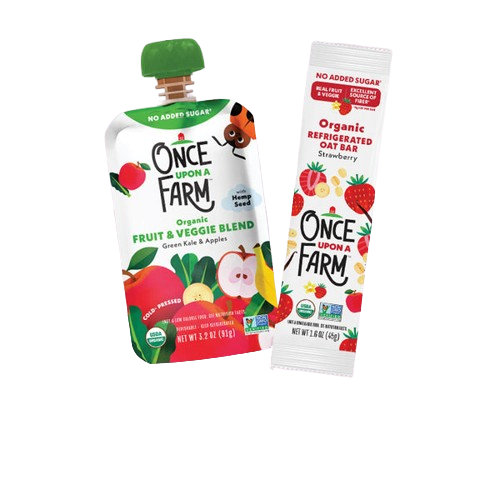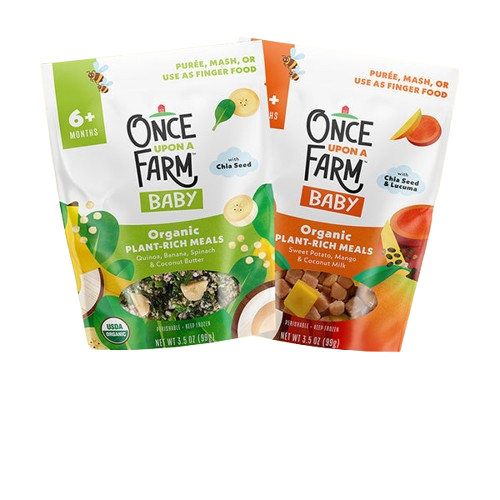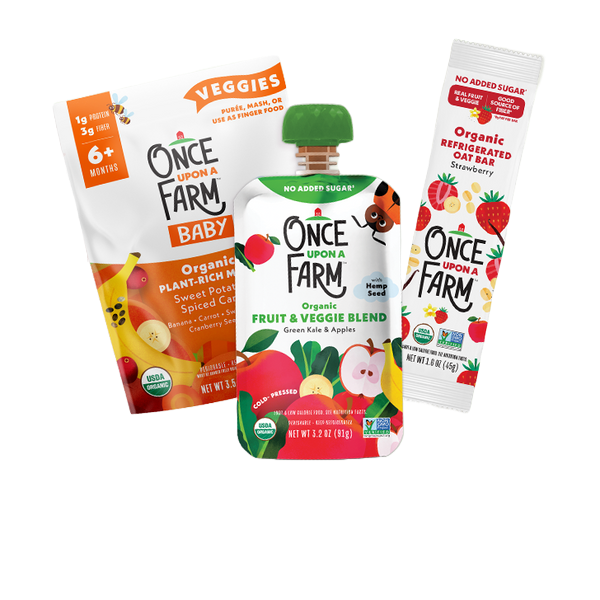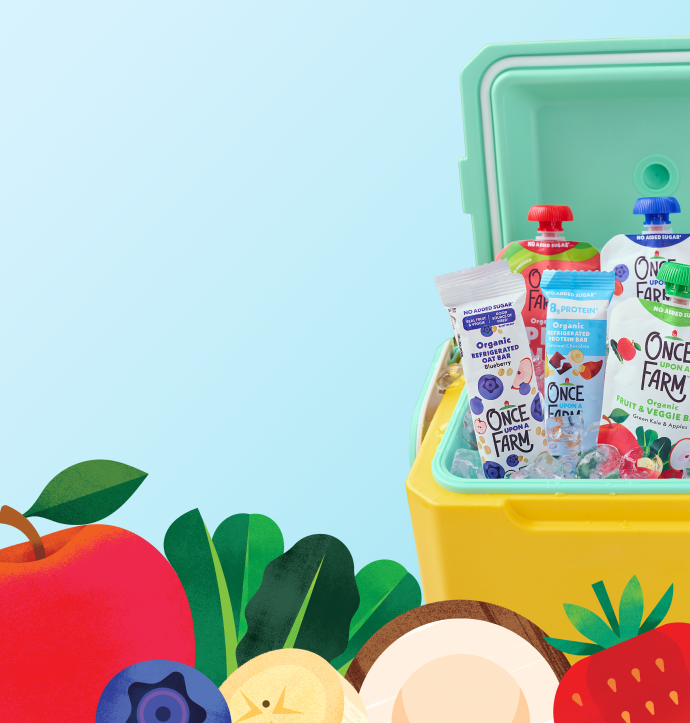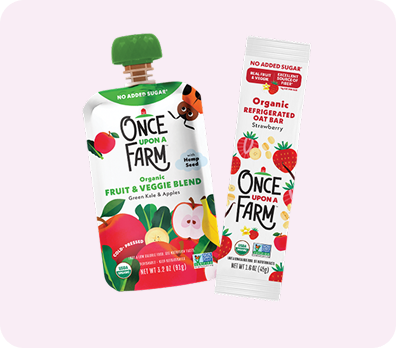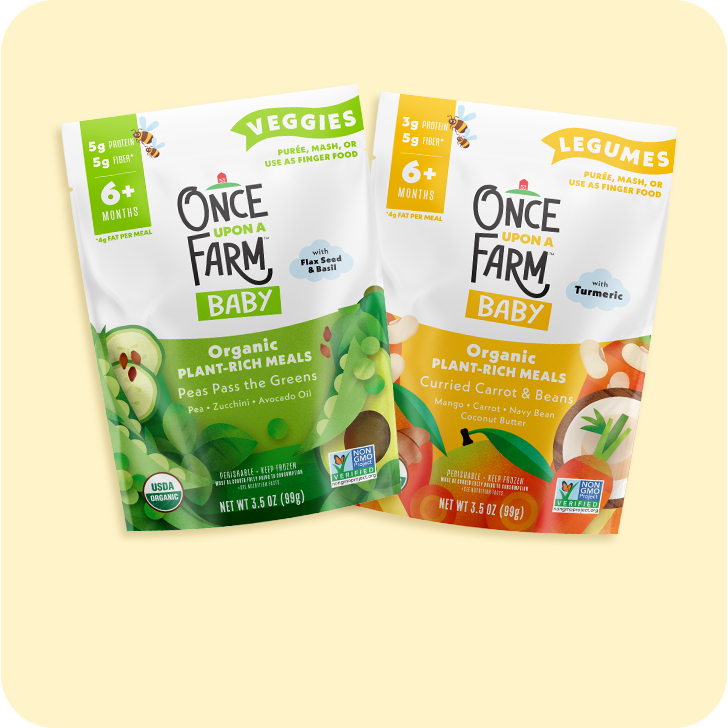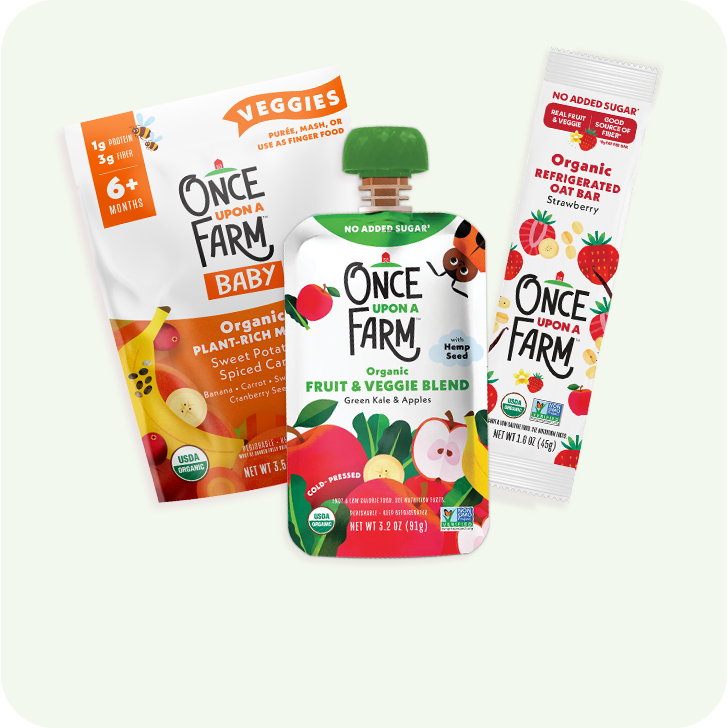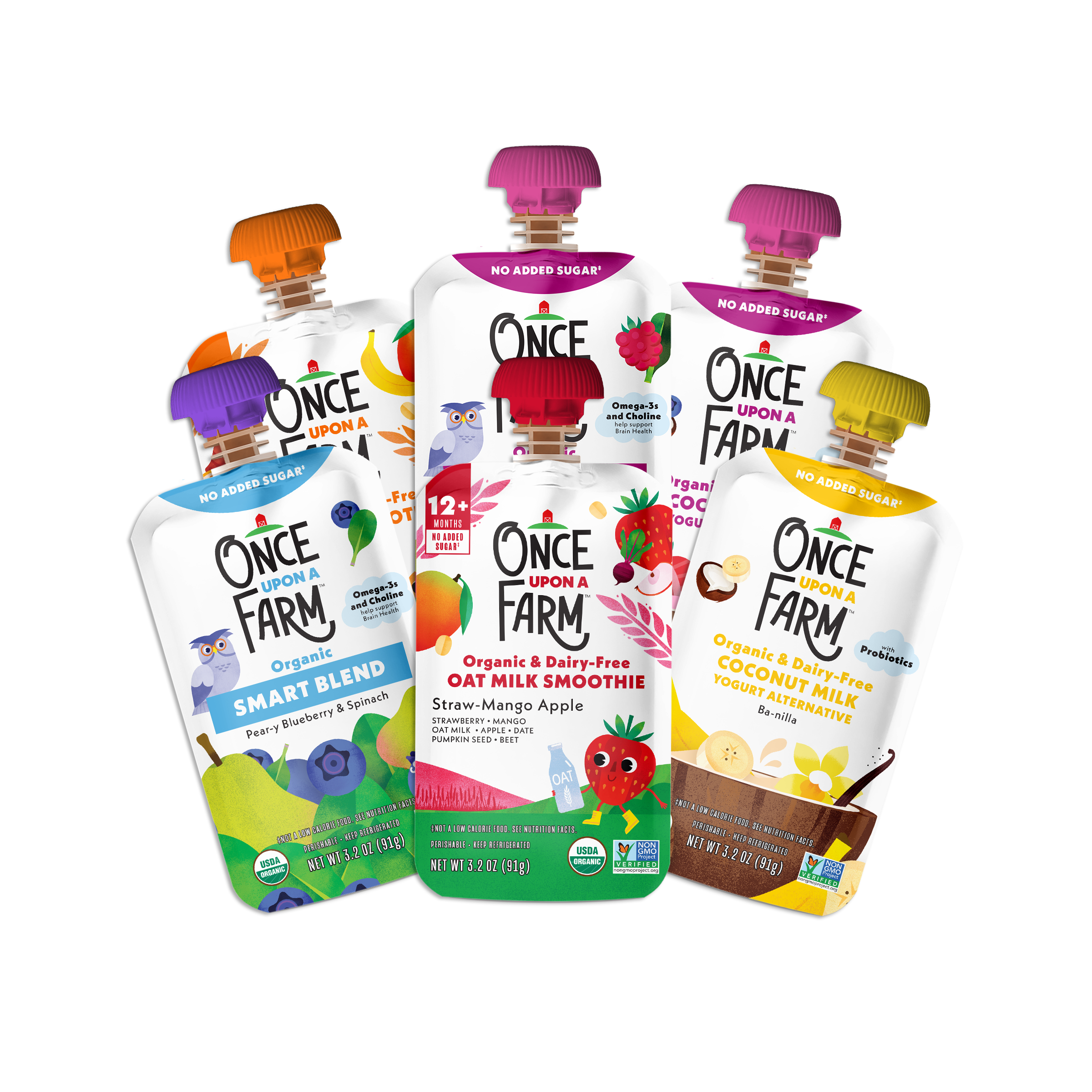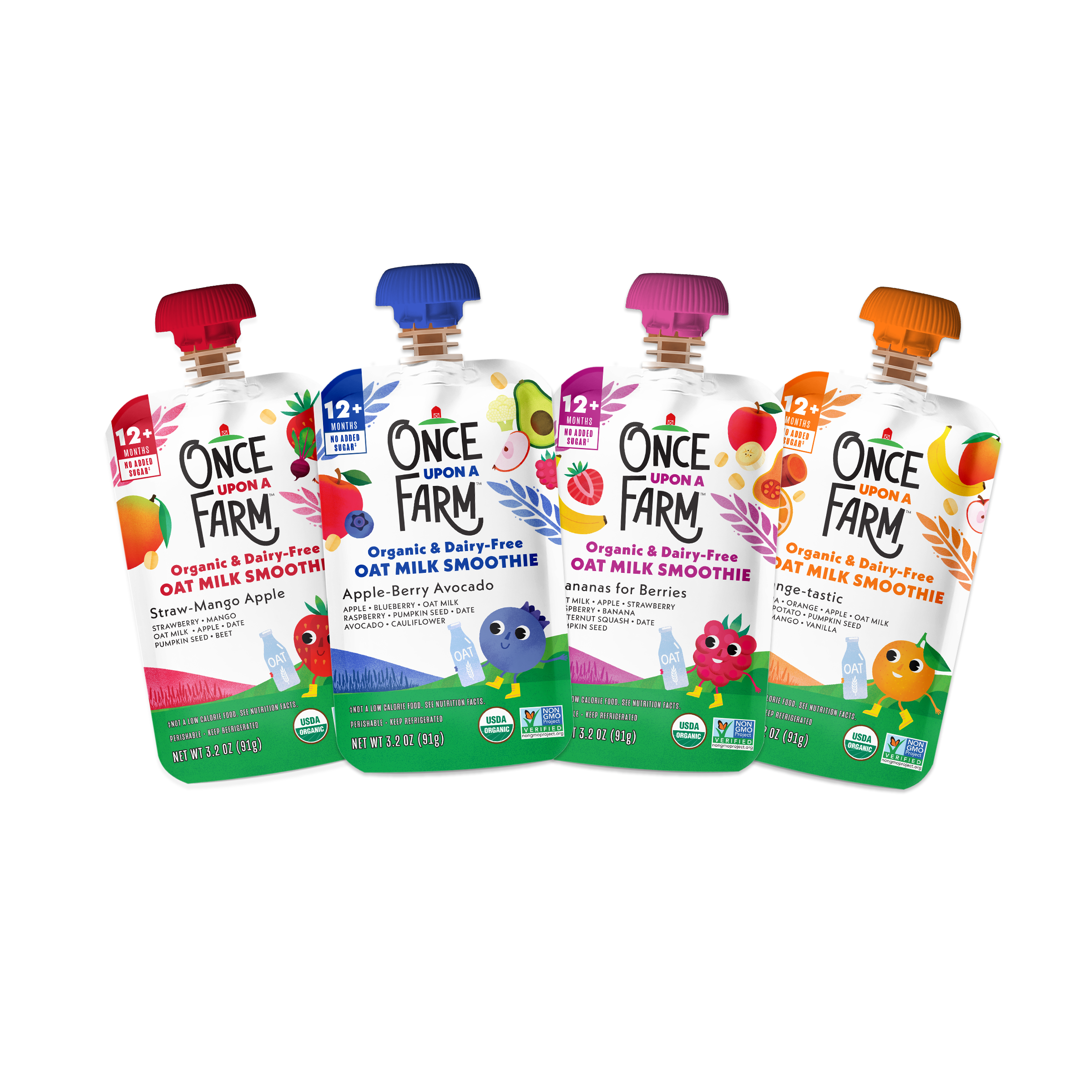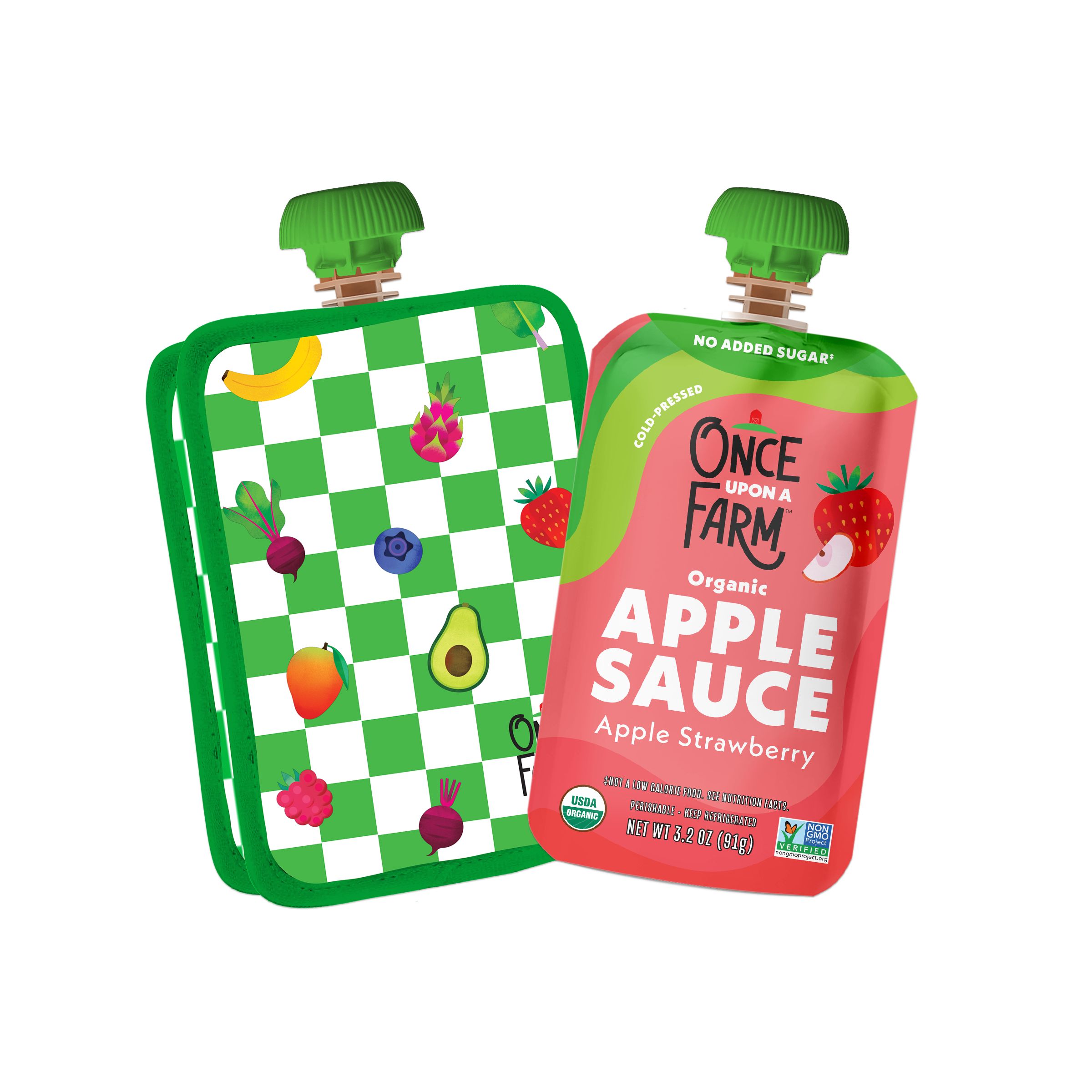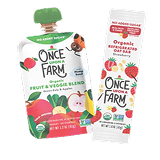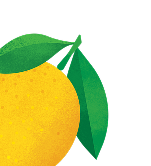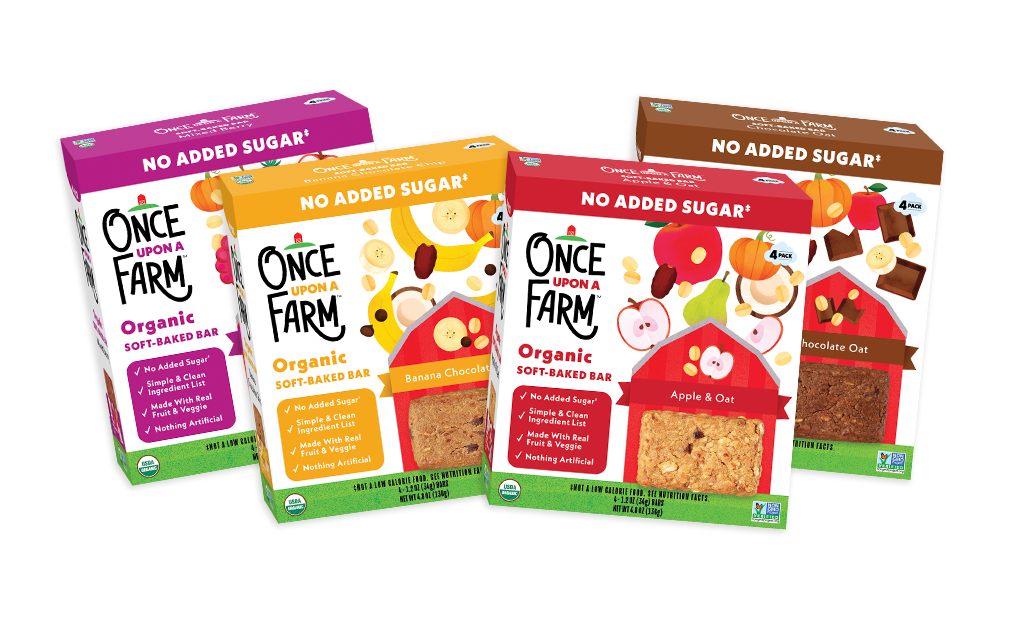This blog was written by one of our O'Farm Experts: "Mama Knows Nutrition" Kacie Barnes, MCN, RDN, LD
What would you say if I told you I have food tricks up my sleeve that just might help your toddler sleep better?
Tricks I’d bet you haven’t tried yet. Even if you’ve tried ALL the things.
Tricks you can easily test out. Even if you’re exhausted and not the most patient person in the house by 7 pm.
Tricks that—I’ll be honest—aren’t magic or a cure-all, but are backed by research.
I bet you’d say something like, “Stop teasing, Kacie! Spill those tricks like a toddler eating spaghetti over a white, wooly rug!”
And spill the spaghetti, I will.
Here are some nutrition tricks that could help your toddler sleep better. Also known as foods that help promote sleep.
How Food Impacts Sleep
Food, and the nutrients we get from food, have effects on our toddlers’ bodies that go way beyond giving them energy. Some of food’s many other roles include…
- Supporting immune systems
- Fostering healthy microbiomes
- Building muscles
And, of course, promoting—or interfering with—a good night’s sleep.
Yep, it’s true! The foods your toddler eats can have direct impacts on the sleep they get in both negative and positive ways. And while nutrition definitely isn’t the biggest determinant of how well toddlers sleep, certain foods can absolutely be used as tools to prepare their bodies for a good night’s rest. And other foods? The one that might be keeping them up a bit longer? They can be served differently or less often.
Foods That Can Promote Sleep
1. Carbs & High-Carbohydrate Dinners
When to consume: More than 1 hour before bedtime
Is this tripping you up a bit? I mean, it is true that, to put it simply, carbs are sugar. And we’ve all heard that sugar before bed is a firm no-go. But studies have found that higher-carb dinner meals are associated with longer sleeps—as long as that meal is eaten more than 1 hour before bedtime.
Why does this work? Likely because eating carbohydrates triggers our brains to release serotonin, and serotonin asserts a positive effect on sleep duration and quality.
Dinnertime Carb Ideas
- Potatoes
- Whole grain bread
- White or brown rice
- Pasta
- Legumes
- Fruits and veggies
2. Omega-3s (Maybe)
When to consume: At dinnertime
A recent study found that the type of Omega-3 fatty acids found in certain fish, seeds, and nuts might improve sleep. But only in kids with clinical levels of sleep deficiency—not for generally healthy sleepers.
Even though we’d need a lot more research to say that Omega-3s promote sleep for sure, I’m including them in this list because they are SO beneficial to kids’ healthy diets anyway. So there’s no harm in trying to add more of them to your toddler’s dinner when you can.
Dinnertime Omega-3 Ideas
- Salmon
- Cold-water, fatty fish like tuna, mackerel, or sardines
- Walnuts
- Flax seeds
- Chia seeds
- Tofu
…And if you’re like, “Kacie…Sardines? Flax seeds? Tofu? My toddler would press the eject button on their highchair if I served them this!” I get that! Instead, try offering them a pouch that’s high in Omega-3s. I love Once Upon a Farm Smart Blends because they have 50mg of Omega-3s each.
3. Micronutrients (Especially Iron)
When to consume: Throughout the day
Micronutrients like iron can help toddlers sleep a little better. It’s not as simple as giving them a supplement and voila! Perfect sleep! But research shows that a lack of micronutrients in the body, especially iron, can disrupt sleep or result in sleep that’s lower in quality and duration.
So instead of worrying about adding in big doses of micronutrients from supplements, just try to be mildly aware of what they eat in a day. So you know they aren’t falling short.
Foods With Iron
- Red meat
- Pork
- Poultry
- Seafood
- Beans
- Tofu
- Dried fruit
- Iron-fortified cereals
- Dark leafy green vegetables
- Once Upon a Farm Smart Blends (Each pouch has 1 mg of iron—which is actually noteworthy! Kids only need 7 mg per day.)
4. Foods With Melatonin
When to consume: At dinnertime or as part of a bedtime snack
Melatonin is a hormone in the body that helps with sleep regulation. You can get it in a supplement, but just like with zinc and iron, I’m not recommending that here. Instead, I like to serve up certain foods that naturally have melatonin in them, like these…
- Tart cherry juice
- Walnuts*
- Almonds*
- Hazelnuts*
- Pistachios*
- Pumpkin seeds*
- Eggs
- Milk
*Nuts and seeds are a choking hazard for kids under four. So if you’re looking for a safer snack that naturally has some melatonin, again, I’d recommend a Once Upon a Farm pouch. They have pumpkin seeds in them, which means there’s a little bit of naturally occurring melatonin in them, too.
Last thing: Please consult with a doctor before giving your toddler any supplements, drinks, or teas with ADDED melatonin. It’s not something you’ll want to give them without the guidance of your child’s healthcare provider.
Foods That Can Inhibit Sleep
1. Caffeine
When to avoid: All day, if you can
I know most of you aren’t giving your kids shots of espresso, but caffeine isn’t just in coffee! Caffeine is also in soft drinks and energy drinks—which I do recommend skipping, but if you have older kids, I know that might be hard. And, caffeine is in chocolate (more on that below).
Avoid caffeine as much as you can with your little one. Some bodies are more sensitive to it than others, so even if a food or drink has what would be a negligible amount to you, it may affect them a lot.
2. Chocolate
When to avoid: Evening/night
Chocolate has caffeine in it. It’s not as much as a cup of coffee has, but it’s not nothing, either! To put it into context…
- 1 Cup (8 oz) of Coffee: 95 mg of caffeine
- Soda (12 oz): 30–40 mg of caffeine
- 1 Cup (8 oz) of Black Tea: 45 mg of caffeine
- 1 oz of Chocolate: 12 mg of caffeine
- 1 Tbsp of Cocoa Powder: 12 mg of caffeine
If you’re offering dessert with or after dinner, keep it lighter on the chocolate to avoid giving your toddler a caffeine jolt right before bed. Some children are highly sensitive to caffeine, even in small doses.
3. Added Sugar
When to avoid: 2 hours before bedtime
You know I never want you to be afraid of sugar! A lot of people out there will tell you it’s the literal worst, but they’re wrong. 🤷🏻♀️ It’s not. In fact, carbs and natural sugars, like those we find in fruit, are nutrients our brains and bodies need.
That said, sugar—especially added sugar—isn’t a food we want our toddlers to have a TON of. And it’s one that’s best avoided right before bed—especially if you want to avoid the blood-sugar-spike-then-crash that ends with one very dysregulated kiddo.
Try to serve sweetened foods no less than 2 hours before bedtime, and choose lower added sugar options wherever you can. Or, pair sweeter foods with a fat, fiber, or protein source, like serving a cookie with a glass of whole milk. This can curb the effects and hopefully lessen that spike!
Bedtime Snacks That Can Promote Sleep
It’s okay to give your toddler a bedtime snack if they’re still hungry. Especially if your dinnertime is more than a few hours before bedtime.
Just aim for snacks that are:
- Substantial (to keep them full overnight)
- Functional (look for nutrients from the “foods that can promote sleep” section above)
- Lower in sugar (to avoid that blood sugar spike before bed)
Balanced Bedtime Snack Ideas
When to serve: About 1–1.5 hours before going to sleep
- 1 cup of milk (or soy milk) and a banana
- Green apple slices with nut butter
- Once Upon a Farm Smart Blend pouch
- Kiwi with string or cottage cheese
- A hard-boiled egg
Pro Tip: 1 hour before going to sleep is the bedtime snack sweet spot! It’ll help ensure they’re full and can go to sleep satisfied—but it’s not so close to bed that they’re still digesting or getting a burst of energy. Also, it gives you a buffer for tooth brushing after the snack.
Your Pre-Bedtime Feeding Plan
The best foods for promoting sleep at dinnertime are ones that have all 3 macronutrients. That means enough complex carbohydrates to keep them full, an animal or vegetarian protein source, and a good, healthy fat source. This combo will set them up for a successful night of sleep! Think:
- Whole wheat pasta with lentil bolognese
- Rice, bean, and cheese quesadillas
- Turkey burgers or sliders on a whole wheat bun
Add fruit or veggies and dip on the side and you’ve got the ideal, kid-friendly, evening meal!
It’s also a good idea to make sure your child is getting enough of their micronutrients throughout the day, including Omega-3 fatty acids, iron, and zinc. A Smart Blend pouch from Once Upon a Farm is a convenient, toddler-approved way to hit this goal. Serve one on the side with dinner or as a bedtime snack to keep your toddler full and make sure they get enough of the micronutrients that support sleep!

